
The BBWAA Career Excellence Award, formerly the J. G. Taylor Spink Award, is the highest award given by the Baseball Writers' Association of America (BBWAA). It is given "for meritorious contributions to baseball writing" and voted on annually by the BBWAA. Winners are typically announced in December, with the award presented during induction festivities of the Baseball Hall of Fame in July.
Elections to the Baseball Hall of Fame for 2000 followed the system in use since 1995. The Baseball Writers' Association of America (BBWAA) voted by mail to select from recent major league players and elected two: Carlton Fisk and Tony Pérez. The Veterans Committee met in closed sessions and selected three people from multiple classified ballots: Sparky Anderson, Bid McPhee, and Turkey Stearnes.
Elections to the Baseball Hall of Fame for 1999 followed the system in use since 1995. The Baseball Writers' Association of America (BBWAA) voted by mail to select from recent major league players and elected three: George Brett, Nolan Ryan, and Robin Yount. The Veterans Committee met in closed sessions and selected four people from multiple classified ballots: Orlando Cepeda, Nestor Chylak, Frank Selee, and Smokey Joe Williams.
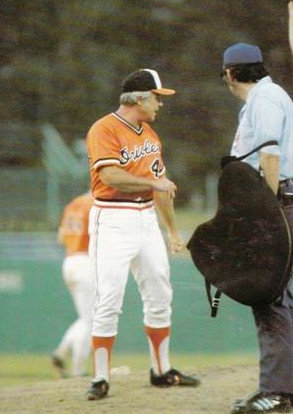
Elections to the Baseball Hall of Fame for 1996 followed the system in use since 1995. The Baseball Writers' Association of America (BBWAA) voted by mail to select from recent major league players but no one tallied the necessary 75% support.
Elections to the Baseball Hall of Fame for 1985 followed the system in place since 1978. The Baseball Writers' Association of America (BBWAA) voted by mail to select from recent major league players and elected two, Lou Brock and Hoyt Wilhelm. The Veterans Committee met in closed sessions to consider older major league players as well as managers, umpires, executives, and figures from the Negro leagues. It also selected two players, Enos Slaughter and Arky Vaughan. A formal induction ceremony was held in Cooperstown, New York, on July 28, 1985, with broadcaster Brent Musburger handling introductions and Commissioner of Baseball Peter Ueberroth in attendance.
Elections to the Baseball Hall of Fame for 1984 followed the system in place since 1978. The Baseball Writers' Association of America (BBWAA) voted by mail to select from recent major league players and elected three: Luis Aparicio, Don Drysdale, and Harmon Killebrew. The Veterans Committee met in closed sessions to consider older major league players as well as managers, umpires, executives, and figures from the Negro leagues. It selected two players, Rick Ferrell and Pee Wee Reese. A formal induction ceremony was held in Cooperstown, New York, on August 12, 1984.
Elections to the Baseball Hall of Fame for 1980 followed the system in place since 1978. The Baseball Writers' Association of America (BBWAA) voted by mail to select from recent major league players and elected Al Kaline and Duke Snider. The Veterans Committee met in closed sessions to consider older major league players as well as managers, umpires, executives, and figures from the Negro leagues. It selected outfielder Chuck Klein and Boston Red Sox owner Tom Yawkey, both deceased. A formal induction ceremony was held in Cooperstown, New York, on August 3, 1980, with Commissioner of Baseball Bowie Kuhn presiding.
Elections to the Baseball Hall of Fame for 1976 followed the system in place since 1971. The Baseball Writers' Association of America (BBWAA) voted by mail to select from recent major league players and elected two, Bob Lemon and Robin Roberts. The Veterans Committee met in closed sessions to consider executives, managers, umpires, and earlier major league players. It selected three players: Roger Connor, Cal Hubbard, and Freddie Lindstrom. The Negro Leagues Committee also met in person and selected Oscar Charleston. A formal induction ceremony was held in Cooperstown, New York, on August 9, 1976, with Commissioner of Baseball Bowie Kuhn presiding.
Elections to the Baseball Hall of Fame for 1974 followed the system in place since 1971. The Baseball Writers' Association of America (BBWAA) voted by mail to select from recent major league players and elected two, Whitey Ford and Mickey Mantle. The Veterans Committee met in closed sessions to consider executives, managers, umpires, and earlier major league players. It selected three people: Jim Bottomley, Jocko Conlan, and Sam Thompson. The Negro Leagues Committee also met in person and selected Cool Papa Bell. A formal induction ceremony was held in Cooperstown, New York, on August 12, 1974, with Commissioner of Baseball Bowie Kuhn presiding.
Elections to the Baseball Hall of Fame for 1972 followed the system established one year earlier. The Baseball Writers' Association of America (BBWAA) voted by mail to select from recent major league players and elected three: Yogi Berra, Sandy Koufax, and Early Wynn. The Veterans Committee met in closed sessions to consider executives, managers, umpires, and earlier major league players. It also selected three people: Lefty Gomez, Will Harridge, and Ross Youngs. The Negro Leagues Committee met for the second time and selected Josh Gibson and Buck Leonard. A formal induction ceremony was held in Cooperstown, New York, on August 7, 1972, with Commissioner of Baseball Bowie Kuhn presiding.
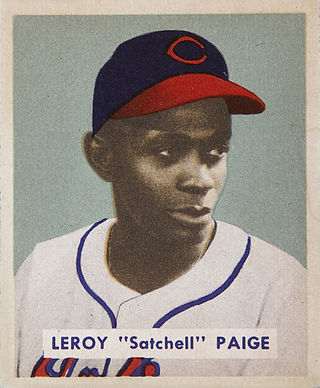
Elections to the Baseball Hall of Fame for 1971 featured a new committee on the Negro leagues that met in February and selected Satchel Paige, who spent most of his career in Negro league baseball before joining the Cleveland Indians in 1948, when he was over 40 years old. Controversy arose both over the selection of a pitcher with only 28 major-league victories and about the original plan not to include Negro league players in the main Hall of Fame. In July, officials announced that Paige and future Negro league selections would be included in the main Hall of Fame. Paige was honored alongside other Hall of Fame inductees in August.
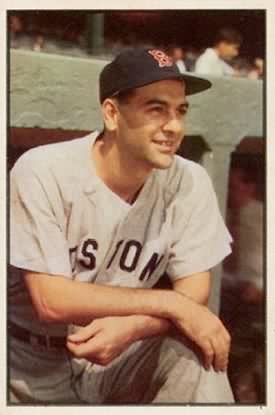
Elections to the Baseball Hall of Fame for 1970 followed the system of annual elections in place since 1968. The Baseball Writers' Association of America (BBWAA) voted by mail to select from recent major league players and elected Lou Boudreau. The Veterans Committee met in closed sessions to consider executives, managers, umpires, and earlier major league players. It selected three people: Earle Combs, Ford Frick, and Jesse Haines. A formal induction ceremony was held in Cooperstown, New York, on July 27, 1970, with Commissioner of Baseball Bowie Kuhn presiding.
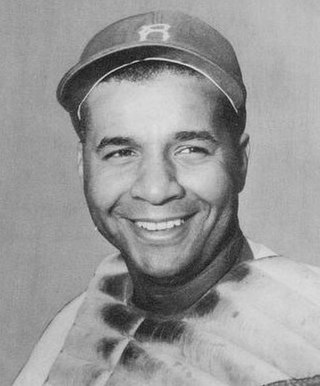
Elections to the Baseball Hall of Fame for 1969 followed the system reintroduced in 1968. The Baseball Writers' Association of America (BBWAA) voted once by mail to select from recent major league players and elected two, Roy Campanella and Stan Musial. The Veterans Committee met in closed sessions to consider executives, managers, umpires, and earlier major league players. It selected two players, Stan Coveleski and Waite Hoyt. A formal induction ceremony was held in Cooperstown, New York, on July 28, 1969, with Commissioner of Baseball Bowie Kuhn presiding.

Elections to the Baseball Hall of Fame for 1967 included a special election, as the Baseball Writers' Association of America (BBWAA) held its first balloting in an odd-number year since 1955. The special election was held due to some ineligible players having received votes in the prior year's balloting, and the BBWAA wanting "to give those eligible every opportunity" to be selected.

Elections to the Baseball Hall of Fame for 1966 followed the system introduced for even-number years in 1956. The Baseball Writers' Association of America (BBWAA) voted by mail to select from recent major league players with provision for a second, "runoff" election in case of no winner. Ted Williams tallied more than 90% on the first ballot. Meanwhile, the Veterans Committee was meeting annually to consider executives, managers, umpires, and earlier major league players. It selected Casey Stengel. A formal induction ceremony was held in Cooperstown, New York, on July 25, 1966, with Commissioner of Baseball William Eckert presiding. During his acceptance speech, Williams advocated for the inclusion of Negro league baseball players, such as Satchel Paige and Josh Gibson, in the Hall of Fame. Paige was inducted in 1971, and Gibson in 1972.

Elections to the Baseball Hall of Fame for 1964 followed the system introduced for even-number years in 1962. The Baseball Writers' Association of America (BBWAA) voted by mail to select from recent major league players with provision for a second, "runoff" election in the event of no player receiving enough votes for induction. The runoff was necessary this year, with Luke Appling the winner. Further, the eligibility of retired players was reduced from having retired 30 years prior to election to 20 years prior.
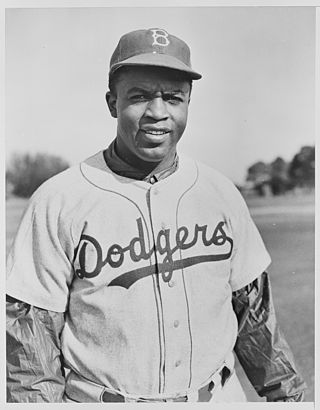
Elections to the Baseball Hall of Fame for 1962 followed a new system for even-number years. Since 1956 the Baseball Writers' Association of America (BBWAA) and Veterans Committee had alternated in their duties, but the BBWAA, voting by mail to select from recent major league players, had elected no one for 1958 and no one for 1960. Now there would be a second, "runoff" election in case of no winner. At the same time, the Veterans Committee resumed meeting annually to consider executives, managers, umpires, and earlier major league players.
Elections to the Baseball Hall of Fame for 1963 followed a system established for odd-number years after the 1956 election. Namely, the baseball writers were voting on recent players only in even-number years.

Elections to the Baseball Hall of Fame for 2013 took place according to rules most recently revised in July 2010. As in the past, the Baseball Writers' Association of America (BBWAA) voted by mail to select from a ballot of recently retired players, with results announced on January 9, 2013. The Pre-Integration Era Committee, the last of three new voting committees established during the July 2010 rules change to replace the more broadly defined Veterans Committee, convened early in December 2012 to select from a ballot of players and non-playing personnel who made their greatest contributions to the sport prior to 1947, called the "Pre-Integration Era" by the Hall of Fame.

Elections to the National Baseball Hall of Fame for 2020 proceeded according to rules most recently amended in 2016. As in the past, the Baseball Writers' Association of America (BBWAA) voted by mail to select from a ballot of recently retired players. The results were announced on January 21, 2020, with Derek Jeter and Larry Walker elected to the Hall of Fame.











